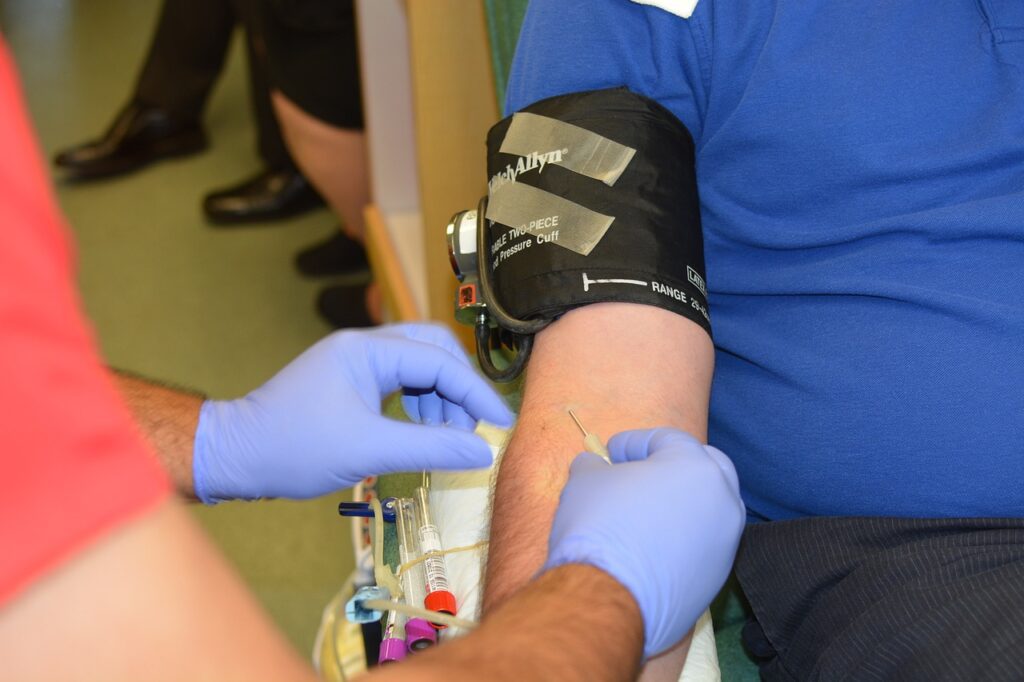
Does Medicare cover ketamine therapy? Ketamine therapy is a rapidly emerging treatment for major depressive disorder and treatment-resistant depression. It involves the administration of a low dose of ketamine intravenously to help alleviate symptoms of depression. This article will discuss the benefits of ketamine therapy for depression, eligibility for Medicare coverage, the ketamine treatment process, and a comparison of ketamine therapy with other depression treatments.
Benefits of Ketamine for Depression Treatment
Studies have shown that ketamine infusion therapy can significantly reduce depressive symptoms in patients with major depressive disorder and treatment-resistant depression. It works by targeting the brain’s glutamate receptors, which are involved in regulating mood. Unlike traditional antidepressants, which can take several weeks to become effective, ketamine therapy can provide rapid relief from depressive symptoms within hours or days of treatment.
Medicare Coverage for Ketamine
Medicare does cover ketamine therapy for the treatment of major depressive disorder and treatment-resistant depression. However, certain criteria must be met to be eligible for coverage. Firstly, the patient must have a diagnosis of major depressive disorder or treatment-resistant depression. Secondly, the patient must have tried at least four other antidepressant medications, which have not been effective. Finally, the patient must have a qualified healthcare provider who has deemed ketamine therapy to be medically necessary.
While Medicare covers the cost of ketamine therapy, there may be out-of-pocket costs, such as copays and deductibles. Coverage limitations may also apply, such as the frequency and duration of treatment.
Ketamine Treatment Process
The ketamine treatment process typically involves three phases: evaluation and eligibility, infusion therapy process, and monitoring and follow-up care.
Evaluation and eligibility involve an initial consultation with a qualified healthcare provider who will review the patient’s medical history, current medications, and symptoms to determine if ketamine therapy is an appropriate treatment option. Infusion therapy involves the administration of a low dose of ketamine intravenously under medical supervision. Monitoring and follow-up care are necessary to ensure the patient’s safety and the effectiveness of the treatment.
Comparison with Other Depression Treatments
Ketamine therapy has been shown to be more effective than traditional antidepressants in providing rapid relief from depressive symptoms. Electroconvulsive therapy (ECT) and transcranial magnetic stimulation (TMS) are also effective treatments for major depressive disorder and treatment-resistant depression. However, ECT requires anesthesia and can cause memory loss, while TMS requires daily treatment for several weeks.
Frequently Asked Questions (FAQs)
- Does Medicare cover ketamine therapy? Yes, Medicare does cover ketamine therapy for the treatment of major depressive disorder and treatment-resistant depression, subject to certain eligibility criteria and coverage limitations.
- How effective is ketamine for depression treatment? Studies have shown that ketamine infusion therapy can provide rapid relief from depressive symptoms in patients with major depressive disorder and treatment-resistant depression.
- What are the possible side effects of ketamine therapy? Possible side effects of ketamine therapy may include dizziness, nausea, blurred vision, and confusion. In rare cases, it may also cause hallucinations, disorientation, or dissociation.
- How long does a ketamine infusion therapy session take? A ketamine infusion therapy session typically lasts for 40-60 minutes.
- How often do I need to receive ketamine infusion therapy? The frequency and duration of ketamine infusion therapy may vary depending on the patient’s individual needs and treatment goals. Typically, patients receive one to two sessions per week for several weeks, followed by maintenance sessions as needed.
- What is the difference between ketamine therapy and other depression treatments? Ketamine therapy works by targeting the brain’s glutamate receptors, which are involved in regulating mood, while traditional antidepress
Disclaimer: The content in this article is provided for general informational purposes only. It may not be accurate, complete, or up-to-date and should not be relied upon as legal, financial, or other professional advice. Any actions or decisions taken based on this information are the sole responsibility of the user. Medicare-365 and/or BL Monahan Inc expressly disclaims any liability for any loss, damage, or harm that may result from reliance on this information. Please note that this article may contain affiliate endorsements and advertisements. The inclusion of such does not indicate an endorsement or approval of the products or services linked. Medicare-365 and/or BL Monahan Inc does not accept responsibility for the content, accuracy, or opinions expressed on any linked website. When you engage with these links and decide to make a purchase, we may receive a percentage of the sale. This affiliate commission does not influence the price you pay, and we disclaim any responsibility for the products or services you purchase through these links.
